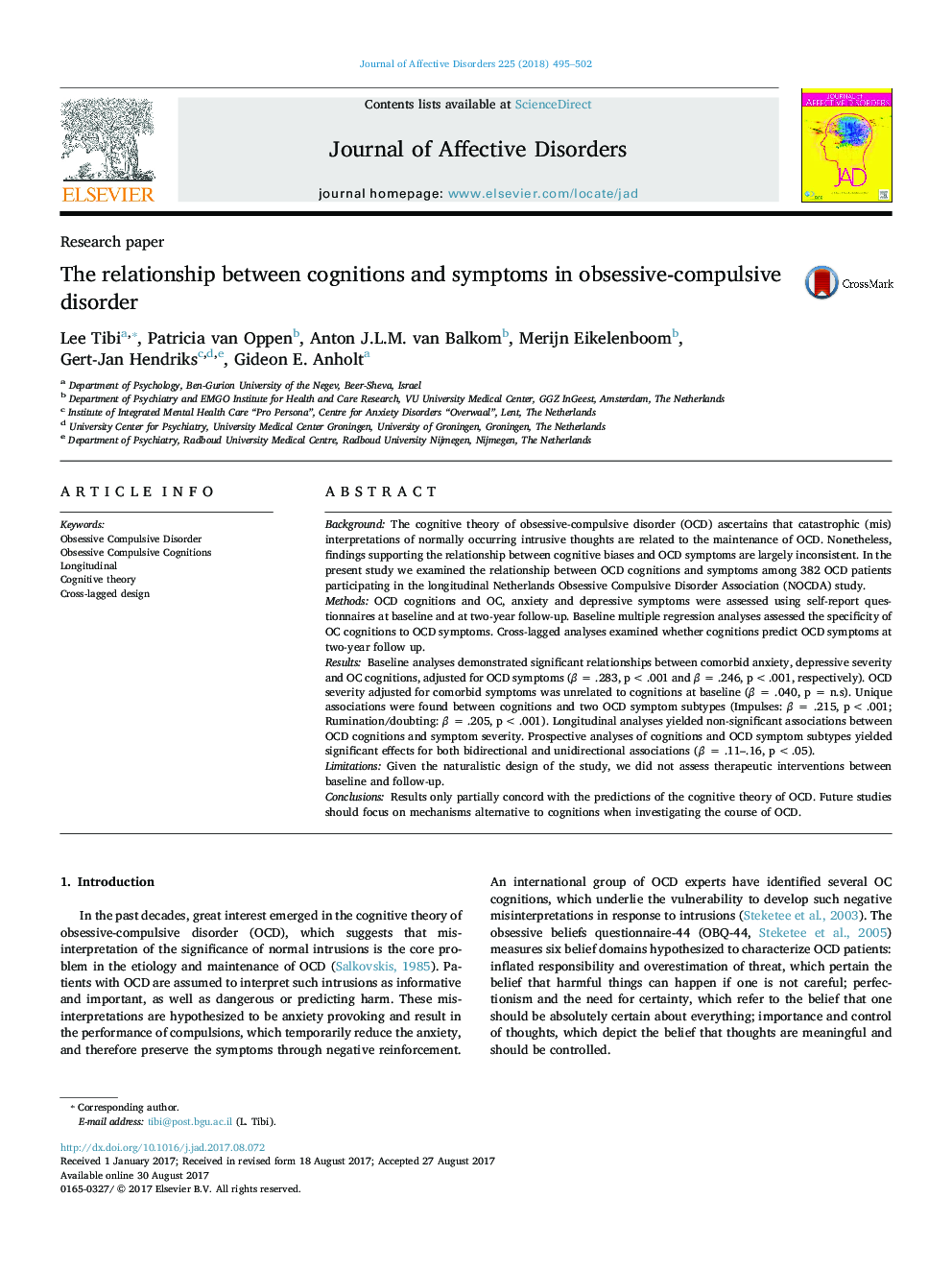| Article ID | Journal | Published Year | Pages | File Type |
|---|---|---|---|---|
| 5721752 | Journal of Affective Disorders | 2018 | 8 Pages |
â¢OCD cognitions were associated with comorbid symptom severity rather than with OCD severity.â¢Impulses and rumination/doubting subtypes were uniquely associated with OCD cognitions.â¢Baseline OCD cognitions did not predict OCD severity at follow up.â¢Prospectively, several symptom subtypes demonstrated both unidirectional and bidirectional associations with OCD cognitions.â¢Cognitions may participate in the maintenance of some OCD subtypes. However, mechanisms alternative to cognitive biases in OCD should be further examined.
BackgroundThe cognitive theory of obsessive-compulsive disorder (OCD) ascertains that catastrophic (mis)interpretations of normally occurring intrusive thoughts are related to the maintenance of OCD. Nonetheless, findings supporting the relationship between cognitive biases and OCD symptoms are largely inconsistent. In the present study we examined the relationship between OCD cognitions and symptoms among 382 OCD patients participating in the longitudinal Netherlands Obsessive Compulsive Disorder Association (NOCDA) study.MethodsOCD cognitions and OC, anxiety and depressive symptoms were assessed using self-report questionnaires at baseline and at two-year follow-up. Baseline multiple regression analyses assessed the specificity of OC cognitions to OCD symptoms. Cross-lagged analyses examined whether cognitions predict OCD symptoms at two-year follow up.ResultsBaseline analyses demonstrated significant relationships between comorbid anxiety, depressive severity and OC cognitions, adjusted for OCD symptoms (β = .283, p < .001 and β = .246, p < .001, respectively). OCD severity adjusted for comorbid symptoms was unrelated to cognitions at baseline (β = .040, p = n.s). Unique associations were found between cognitions and two OCD symptom subtypes (Impulses: β = .215, p < .001; Rumination/doubting: β = .205, p < .001). Longitudinal analyses yielded non-significant associations between OCD cognitions and symptom severity. Prospective analyses of cognitions and OCD symptom subtypes yielded significant effects for both bidirectional and unidirectional associations (β = .11-.16, p < .05).LimitationsGiven the naturalistic design of the study, we did not assess therapeutic interventions between baseline and follow-up.ConclusionsResults only partially concord with the predictions of the cognitive theory of OCD. Future studies should focus on mechanisms alternative to cognitions when investigating the course of OCD.
